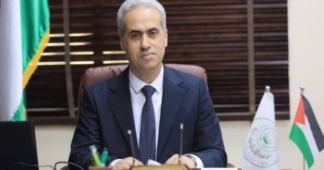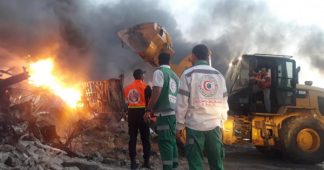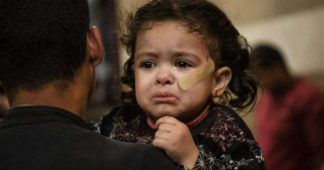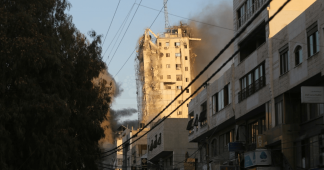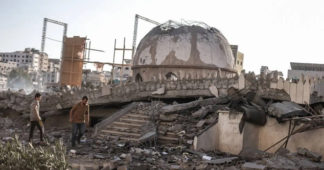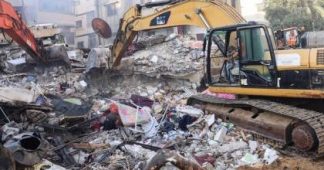Since 7 October, Israel has destroyed almost all of Gaza’s universities and killed 4,327 students and 92 professors
By Katherine Hearst
31 January 2024
Wesam Amer, dean of the Faculty of Communication and Languages at the Gaza University was evacuated from the strip in November.
Slotsmines Online Casino is swiftly gaining recognition in the world of digital gaming. With a vast range of games, including popular slots, table games, and live dealer options, it caters to diverse player preferences. The user-friendly interface ensures that both beginners and seasoned players can navigate the platform effortlessly.
One standout feature of Slotsmines is its commitment to player security and responsible gaming. The casino employs advanced encryption technologies to protect user data and offers various tools to promote responsible gambling. Additionally, generous bonuses and promotions frequently attract new players, enhancing the overall gaming experience.
For real-time updates and gaming insights, you can explore their offerings through this link: https://masonicwaitara.co.nz/.
Overall, Slotsmines Online Casino combines an extensive game selection with user-friendly features and robust security, making it a compelling choice for anyone looking to enjoy an online gaming experience. Whether you’re a slot enthusiast or a fan of table games, Slotsmines is worth checking out!
He tries to keep track of his colleagues left in Gaza, but frequent blackouts make that difficult.
“Many of my colleagues are still there…or displaced to Rafah in the south,” Amer, a Fulbright scholar and visiting researcher at Harvard, told MEE. “Some have preferred to stay in the rubble of their homes.”
Rights groups have condemned Israel’s targeting of Gaza’s academic community and infrastructure as deliberate and tantamount to a war crime.
In an open letter to the UK government, the British Society for Middle Eastern Studies (BRISMES) denounced the “systematic targeting” of universities, schools, laboratories and libraries as “part of a genocidal strategy aimed at destroying in whole or in part the Palestinian education system within the Gaza Strip”.
Neve Gordon, vice president of BRISMES and professor of international law and human rights at Queen Mary University, described the destruction of Gaza’s education system as “educide”.
“The long-term effects on the productivity of the society, on its culture, on every aspect of it, are devastating,” he told MEE.
‘Targeted’ killings
In a statement issued on 20 January, the rights group Euro-Med Human Rights Monitor, said that Israeli forces have deliberately “targeted academic, scientific, and intellectual figures in the Strip”.
According to the Palestinian Ministry of Education, the Israeli assault on Gaza has so far killed 4,327 students and maimed 7,819 others, while also killing 231 teachers and administrators and wounding 756.
Additionally, Israeli forces have killed 94 university professors, according to the rights group.
Many of them were internationally renowned scholars, including one of Gaza’s most prominent intellectuals, poet and literature professor Refaat Alareer who was killed on 7 December.
The scale of the deaths of students and educational staff in the region is “unprecedented,” according to BRISMES.
“When you kill the intellectuals of a society, who is going to narrate…the memory of that community?” Samia al-Botmeh, an assistant professor of economics at Birzeit University, told MEE.
The decimation of Gaza’s academic community has been accompanied by the flattening of its physical educational infrastructure.
“Most of the universities in Gaza are either completely destroyed or partially targeted,” Amer said.
The Islamic University and the University College of Applied Sciences were bombed on the 11 and 19 October, with Al Azhar University, Gaza’s second largest university, targeted on 4 November, followed by the total destruction of Al Quds university on 15 November.
On 17 January, videos of the controlled demolition of Al-Israa university, the last remaining major university in the Gaza Strip, were circulated on social media.
The building had been occupied and used as a military barracks by Israeli forces who had looted 3,000 rare artefacts before its destruction, according to BRISMES.
“Israel wants to create an environment…that will force academics, intellectuals and students from Gaza,” Amer said.
“The intention is to make life unlivable in Gaza. Education is part and parcel of that,” al-Botmeh said.
A survival mechanism
Israel’s targeting of Palestinian academic institutions is nothing new.
“It’s always been a strategy of Israel,” al-Botmeh told MEE. “For the Palestinians, [education] is a survival mechanism. We survive colonisation through becoming more and more educated.”
The 17-year siege on Gaza has hamstrung its universities through restrictions on movement in and out of the strip.
Gaza’s students struggle to travel abroad for their education, while international scholars are unable to visit universities in the strip.
“Teaching is about broadening your horizons, it’s about interaction. It’s about working together and of course, Israel tries to curtail all of that,” al-Botmeh told MEE.
Movement restrictions also plaguAe Palestinian students in the occupied territories, by forcing them to access education locally.
“Movement restrictions actually changed the nature of education by localising it,” al-Botmeh said. “Because people want to keep out of harm’s way and content themselves with whatever is offered at their local universities.”
Since 7 October, universities in the West Bank have moved teaching online amid escalating attacks by Israeli occupation forces.
On 8 November, Israeli soldiers stormed Birzeit University, shooting a young Palestinian man.
On 15 January, nine students at An-Najah National University in Nablus were arrested because of their alleged support for Hamas.
Even prior to 7 October, military raids targeting libraries, student unions and laboratories on West Bank campuses were routine.
“Campuses are supposed to be a sanctuary,” al-Botmeh said. ”The raids are tough for staff and students.”
According to al-Botmeh, over 100 of Birzeit University’s students are in prison, while teaching staff are regularly arrested at checkpoints.
Not just buildings
The reconstruction of Gaza’s education system is likely to take years.
“It’ll take decades,” Gordon told MEE. “What has been lost is not only the physical infrastructure but also some of the intellectual infrastructure.
“The intellectual leadership of Gaza has been targeted,” he said.
For al-Botmeh, the recovery of Gaza’s academic life will be contingent on the “de-traumatising” of academics and students.
“It’s not just about buildings and stones and concrete blocks. It’s about human beings. Students have gone through life experiences that are horrific,” al-Botmeh said.
We remind our readers that publication of articles on our site does not mean that we agree with what is written. Our policy is to publish anything which we consider of interest, so as to assist our readers in forming their opinions. Sometimes we even publish articles with which we totally disagree, since we believe it is important for our readers to be informed on as wide a spectrum of views as possible.
